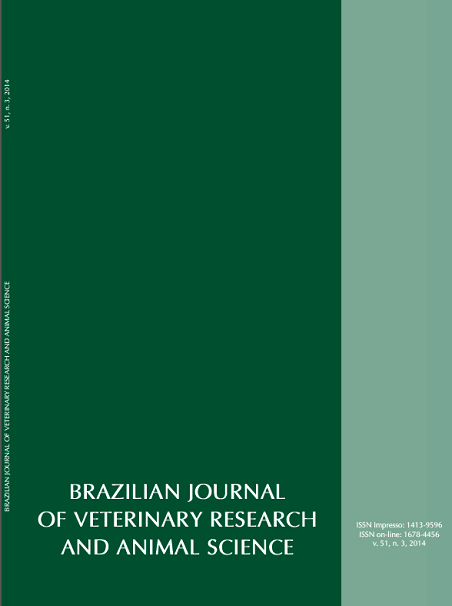Molecular detection of leptospiral carriers in sheep under tropical field conditions
DOI:
https://doi.org/10.11606/issn.1678-4456.v51i3p220-223Keywords:
leptospirosis, PCR, sheep, controlAbstract
The purpose of this study was to analyze the usefulness of PCR for the detection of leptospiral carriers in sheep under tropical field conditions. Two flocks, previously reported as seroreactive (A) and seronegative (B), were selected for this study. From those, the totality of animals of each flock, urine and vaginal fluid (VF)/semen were collected for bacteriological culture and PCR, as well as serum samples for serology. Serology confirmed the previous status of the two flocks. Culture was negative for all the samples. In PCR, animals of Flock A presented 26.7% (VF), 33.3% (semen) and 38.9% (urine) of positivity. Flock B presented 40.0% (VF), 33.3% (semen) and 5.6% (urine) of positivity by PCR. In conclusion, PCR was important to identify carriers of leptospires, including animals from a seronegative flock, what reinforces the advantages of the usage of this tool for the detection of carriers in sheep as part of control programs of leptospirosis under tropical field conditions.
Downloads
Downloads
Published
Issue
Section
License
The journal content is authorized under the Creative Commons BY-NC-SA license (summary of the license: https://





